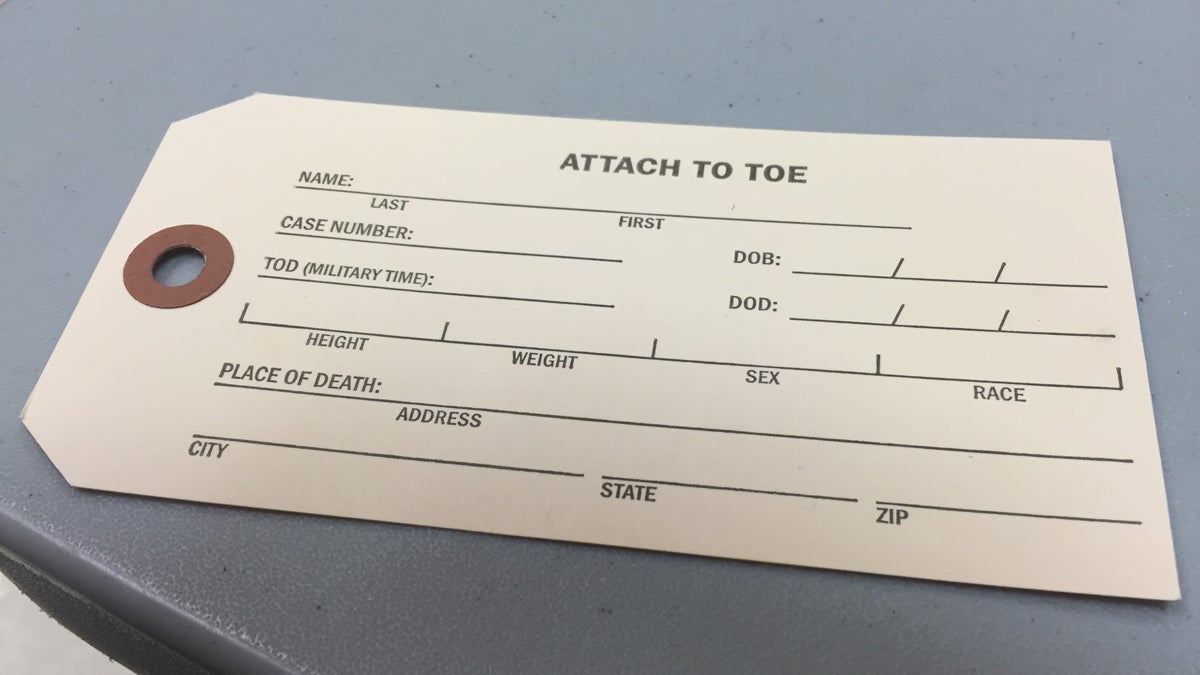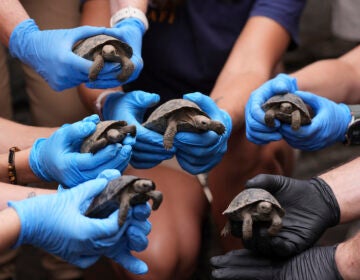How are our bodies regulated after death?
Listen 5:25
In order for human bodies to be used for transplants, research and education, they need to be the subject of a gift. (Photo by Maiken Scott/WHYY)
Thousands of people donate their bodies to science each year, to be dissected by wide-eyed med students during their first-year anatomy class, or to be used in other areas of training and research. But that is a relatively new development.
This piece is part of our “Bodies” show. Take a look at the rest of our stories here.
Thousands of people donate their bodies to science each year, to be dissected by wide-eyed med students during their first-year anatomy class, or to be used in other areas of training and research. But that is a relatively new development.
Until the 1940s and 50s, med schools relied mostly on unclaimed bodies for this purpose. World War II helped bring about a major cultural shift in how we look at the body after death. People gave blood for blood banks, they donated corneas – and eventually, when surgeons started to transplant organs successfully, the idea of giving away parts of your body after death became more acceptable.
This development also created an urgent need for more legislation around the use of bodies and tissues.
“Human bodies, in order to be used for any of the things they can be used for – transplant, research, education, need to be the subject of a gift, and that is governed in every state by the uniform anatomical gift act,” explained New Jersey attorney Christina Strong.
The legislation was passed in 1968 and has since been revised several times to keep up with new developments. “The laws are not very different from state to state. Organs are a national resource, we needed uniformity so that people could get organs across state lines.”
Strong says people can choose to give their whole body, or to give organs or tissues – and they can be very specific in their choices. “You can say ‘I only want to donate my eyes,’ or ‘I’m comfortable with organ donation, but not with the donation of my eyes.'”
One thing you can’t do is sell your organs and tissues, it’s prohibited by federal law, but you could potentially sell your whole body for education in many states. “Whole bodies is not subject to that federal prohibition, but it doesn’t really happen anywhere because medical professionals do not want to be part of a market for cadavers,” said Strong. “This is a precious resource, this is a legacy that you can give to the benefit of humanity. If we have to pay you for it, maybe you should take it with you.”
But money still exchanges hands. “I’m an attorney who works for these entities, I get paid by these entities,” said Strong. “Other professionals interact with the families. Tissues need to be stored, they need to be distributed – there are a lot of professionals involved who need to be paid.”
If you donate your whole body to science, the cost of cremation is typically covered by the organization receiving the body. That’s not an option in organ and tissue donation. “If you donated your liver and kidney I could not pay for your cremation, because I’d be giving you something valuable in exchange,” explained Strong. “And people talk about this and debate it, because we think of the value to the recipient of life, it would seem right to be able to give people something like cost of your burial, but we don’t want to entice people to make that gift. It’s an interesting moral conundrum.”
WHYY is your source for fact-based, in-depth journalism and information. As a nonprofit organization, we rely on financial support from readers like you. Please give today.







